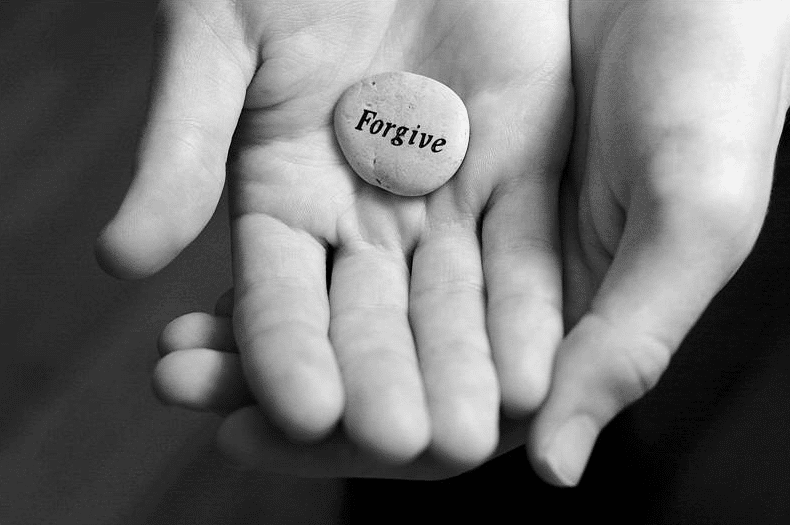How to Forgive Someone Who Has Hurt You Deeply: Practical Tips for Emotional Healing
How to Forgive Someone Who Has Hurt You Deeply: Practical Tips for Emotional Healing
Blog Article
Recognizing the Importance of Forgiveness in Recovery Relationships
Forgiveness is often viewed as an easy act of allowing go, yet its value in recovery partnerships prolongs much past simple absolution. What remains to be revealed is the extensive impact mercy can have on specific growth and common harmony.
The Meaning of Mercy
Although forgiveness is typically regarded as a simple act of letting go, its meaning includes a complex interplay of emotional and emotional processes. At its core, forgiveness is the mindful choice to release feelings of bitterness or vengeance towards an individual or team that has triggered injury. This procedure is not merely regarding absolving the culprit; rather, it includes an extensive psychological makeover that can lead to individual development and recovery.
Mercy is complex, commonly defined by a person's interior struggle to resolve their pain with the wish for peace. It calls for identifying the wrongs committed, refining the associated feelings, and ultimately choosing to move onward without the burden of bitterness. This option commonly requires a cognitive shift, where one reframes their understanding of the disobedience and the perpetrator, permitting for empathy and comprehending to emerge.
Importantly, mercy does not indicate condoning the actions or neglecting the crime; it is a deliberate act that focuses on psychological wellness. By specifying forgiveness in this way, we can value its function in helping with healthier partnerships and fostering psychological durability, setting the phase for deeper exploration into its advantages.
Emotional Advantages of Forgiveness
Mercy provides considerable psychological advantages that can exceptionally influence a person's psychological wellness and overall health. When an individual chooses to forgive, they actively release feelings of animosity, bitterness, and rage, which can or else produce a heavy emotional worry. This release commonly brings about a decrease in tension and anxiety, promoting a sense of peace and emotional security.
Furthermore, mercy promotes a raised capacity for empathy and compassion. By understanding the perspective of the transgressor, people can cultivate a much deeper emotional strength, which boosts their capability to deal with future difficulties. This process not just boosts psychological policy but additionally adds to an extra positive expectation on life.
Furthermore, flexible others can strengthen one's self-esteem and self-worth. It enables individuals to recover their individual power, damaging without the adverse cycles of victimhood - The importance of forgiveness. This newfound empowerment can bring about healthier psychological responses and more powerful interpersonal partnerships
Forgiveness vs. Reconciliation
The distinction in between mercy and reconciliation is essential in recognizing the characteristics of healing relationships. Forgiveness is an internal procedure in which an individual chooses to allow go of bitterness and adverse sensations in the direction of a person who has actually triggered harm. It is largely an individual trip, concentrated on emotional release and self-healing, allowing one to move on without bring the concern of past grievances.
In comparison, settlement entails rebuilding and recovering the partnership to a state of trust and common respect. This procedure often needs open communication, active participation from both events, and a commitment to attending to the underlying problems that caused the problem. While forgiveness can occur individually, settlement demands the readiness of both people to participate in dialogue and work towards a shared understanding.
It is essential to keep in mind that forgiveness does not constantly cause reconciliation. A person may forgive one more without choosing to restore the connection, especially if count on has been irrevocably damaged or if the connection is regarded undesirable. Recognizing this distinction enables individuals to navigate their emotions successfully and make educated choices concerning their relationships.
Actions to Cultivate Forgiveness
Growing mercy is a purposeful process that entails numerous essential steps targeted at assisting in emotional recovery. The very first step is acknowledging the pain triggered by the offense. Recognizing one's sensations is crucial, as it permits people to process their emotions really.
Next, reviewing the occurrence and recognizing its effect can offer quality. This reflection needs to include examining the motivations behind the transgressor's activities and acknowledging that everyone is imperfect.
The third action includes making a mindful decision to forgive. This decision is essential, as it represents a desire to let go of animosity and progress.
Subsequently, expressing sensations in a useful way can be useful - The importance of forgiveness. Whether through journaling, chatting with a trusted close friend, or looking for therapy, expression of emotions can assist in the mercy journey
Real-Life Instances of Forgiveness

In an additional example, a dense team of buddies encountered a significant rift after one member unintentionally shared a private trick. Rather than harboring resentment, the affected good friend determined to forgive, understanding the significance of valuing the relationship over the blunder. This choice urged open dialogue and inevitably enhanced their connection.

Final Thought
In conclusion, forgiveness plays a critical duty in the healing of connections by assisting in the release of unfavorable emotions and cultivating empathy. By comparing mercy and settlement, people can participate in a constructive procedure that boosts psychological wellness. Applying steps to cultivate mercy can lead to transformative end results, enhancing connections and advertising an encouraging setting. Ultimately, the method of forgiveness works as a driver for personal development and the nurturing of healthier social dynamics.

Report this page